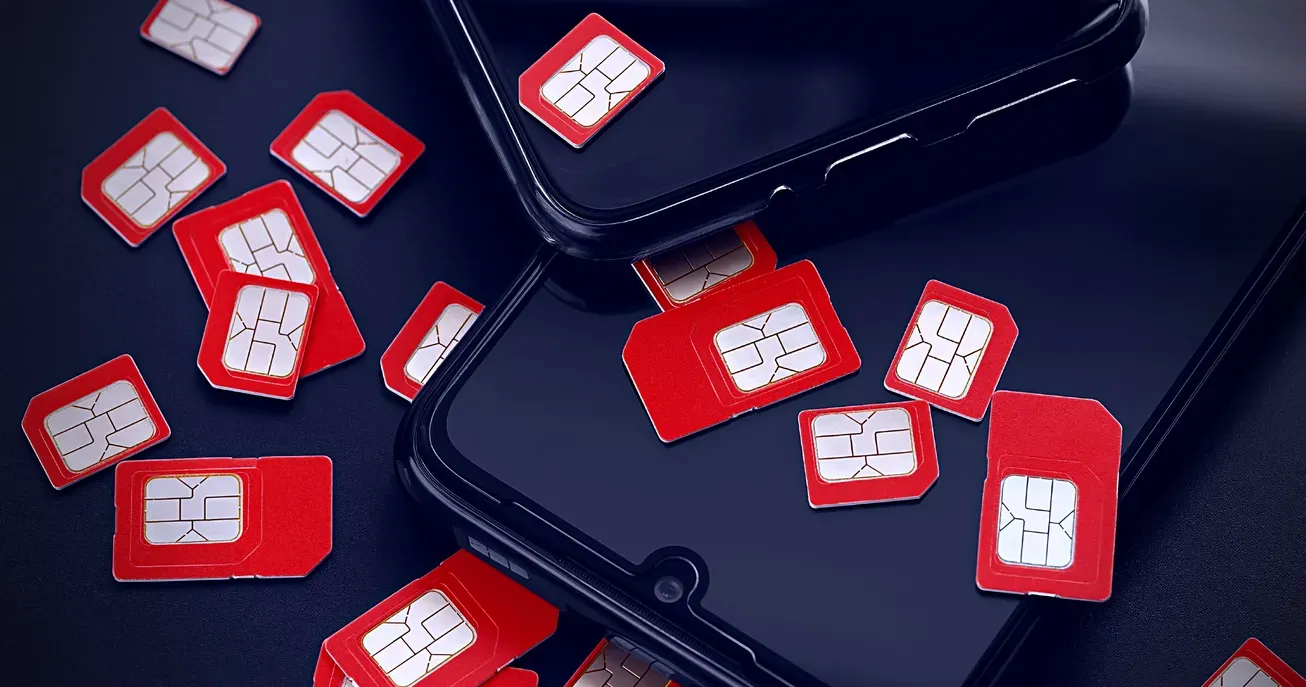Ali Akbar Gorji discovered the new rules of dissent in Iran when his phone stopped working.
The law professor at Shahid Beheshti University in Tehran, who served in Hassan Rouhani’s administration, found his mobile service cut without warning.
When he inquired, security agents delivered a simple ultimatum: delete your social media posts criticizing the Israel-Iran war, or stay disconnected.
Gorji’s case illustrates an expanding campaign by Iranian authorities to weaponize digital infrastructure against critics.
Across the country, security forces are systematically blocking citizens’ mobile phone access without court orders, then demanding political loyalty in exchange for reconnection.
The practice represents what digital rights advocates call a new frontier in authoritarian control – leveraging essential communication services to manufacture compliance in the digital age.
The systematic blocking of SIM cards emerged from the chaos of Iran’s 2022 nationwide protests following Mahsa Amini’s death in police custody.
What began as isolated incidents has evolved into a coordinated suppression tool targeting anyone deemed problematic by authorities.
Reports first surfaced in September 2024, when IranWire documented citizens across multiple provinces losing phone service after interactions with morality police or social media activity.
Follow-up investigations revealed that telecommunications companies were receiving direct orders from FATA police – Iran’s cyber crimes unit – operating under judicial and security authority commands.
The targeting extends far beyond traditional activists. Journalists, business owners, social media influencers, students, and women resisting mandatory hijab laws have all found themselves digitally severed from society.
In some cases, people received hijab-related text messages before losing service. Others discovered their phones cut after security forces detected social media activity deemed unacceptable.
By November 2024, the digital rights organization Filterban warned that “a new type of systematic and illegal suppression” was intensifying across Iran.
The group documented hundreds of blocked SIM cards across at least nine provinces from summer through December 2024, calling the practice an experimental suppression method replacing traditional arrests and summons.
The phone blocking system operates with echoes of Iran’s prison-era “repentance” programs from the 1980s, when authorities converted political prisoners into regime supporters through psychological and physical torture.
One Iranian citizen whose phone was blocked said that after his service was cut, FATA police demanded he delete protest posts and publish pro-government content on social media.
The alternative, agents told him, was arrest.
“They have strong backing,” the citizen said. “They’re certain that neither the judiciary nor any upstream institution will prevent their actions, and this shows me that the issue is much more deep-rooted and orders come from much higher places.”
The confidence displayed by security agents suggests institutional support for the practice.
Unlike traditional suppression methods that risk public attention, phone blocking operates in bureaucratic shadows.
Citizens often discover their service terminated only when trying to make calls, with no advance warning or explanation.
Telecommunications companies – including major operators Hamrah-e-Avval and Irancell – simply implement the orders without question.
When customers inquire about service disruptions, they’re directed to security authorities rather than technical support.
Iranian lawyers interviewed about the phone blocking campaign describe it as fundamentally illegal under the country’s own constitution and laws.
Mohammad Olyaeifard, a legal expert, said SIM card blocking constitutes illegal property destruction.
“Article 36 of the constitution states that punishment orders must be by competent courts,” he explained. “Therefore, agents cannot take any action unless it’s with court permission.”
Olyaeifard compared the practice to demolishing someone’s building without judicial authorization.
Under Iran’s Computer Crimes Law, destroying telecommunications systems can result in up to two years’ imprisonment – making the security forces’ actions technically criminal under domestic law.
“Property is a right,” Olyaeifard said. “Someone who gets a SIM card owns that SIM card, and if someone damages that ownership without a court order, they have committed a crime, and the person can file a complaint.”
The blocking also violates constitutional free expression guarantees, according to legal experts.
Article 21 of Iran’s constitution provides for freedom of expression, with limitations only for lying, spreading falsehoods, or insulting others – none of which apply to most blocked users’ social media activity.
Musa Barzin, a lawyer, places phone blocking within a broader pattern of extrajudicial punishment that emerged after the 2022 protests.
Authorities now routinely confiscate vehicles from women not wearing hijab, seal businesses deemed problematic, and block national ID codes to prevent access to government services.
“In law, we have nothing called SIM card blocking as punishment or discipline,” Barzin said. “SIM card blocking is only possible when a person doesn’t pay their recharge fee.”
The impact extends beyond communication convenience. In Iran’s increasingly digital economy, mobile phones serve as essential infrastructure for banking, government services, and employment.
The national digital identity system requires mobile verification for most transactions.
Citizens lose access to banking applications, government platforms, and digital payment systems when their phones are blocked.
Many discover they cannot pay bills, receive wages, or access healthcare systems that rely on mobile verification.
“In this digital world, blocking SIM cards causes a lot of damage to a person,” Barzin explained. “Whatever they want to do, they need a SIM card. From banking applications to government systems, they definitely need a SIM card.”
Victims often face a choice between digital exile and political capitulation. Some eventually agree to delete social media posts and publish pro-Islamic Republic content in exchange for restored service. Others remain effectively cut off from digital society indefinitely.
Source: iranwire




